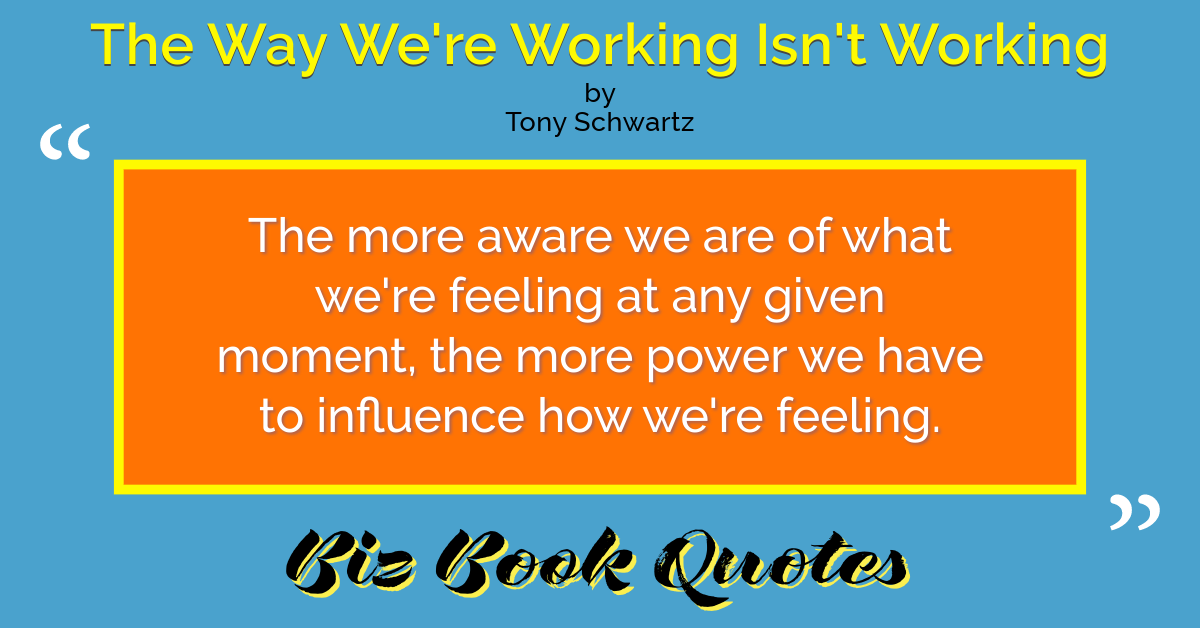 |
The more aware we are of what we’re feeling at any given moment, the more power we have to influence how we’re feeling.
|
124 |
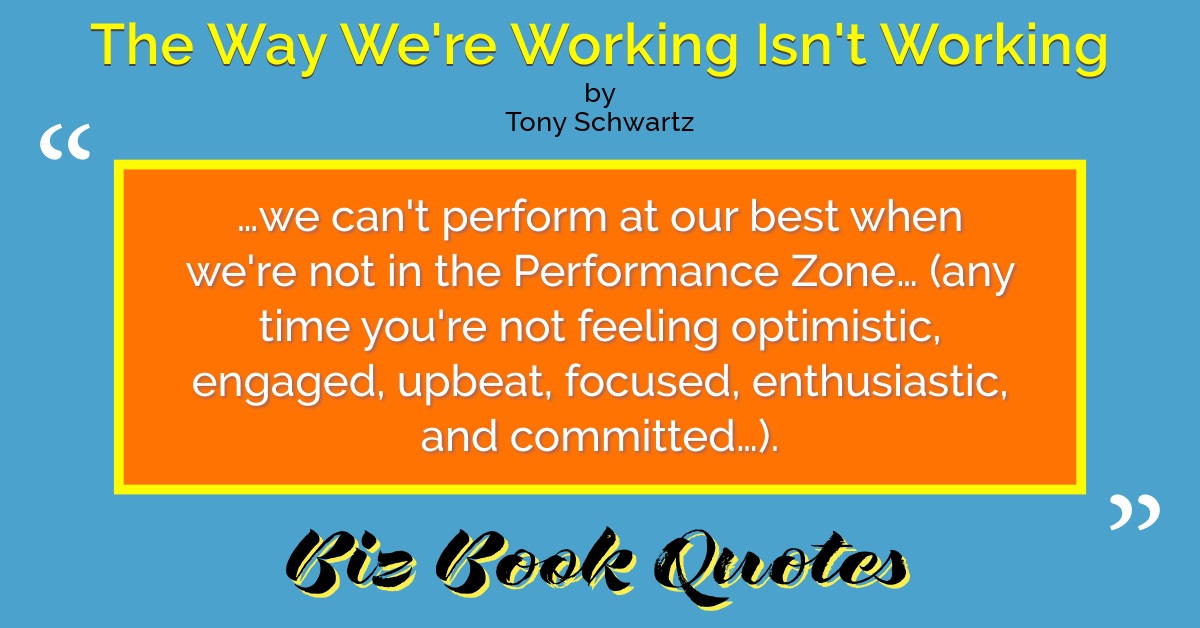 |
…we can’t perform at our best when we’re not in the Performance Zone… (any time you’re not feeling optimistic, engaged, upbeat, focused, enthusiastic, and committed…).
|
124 |
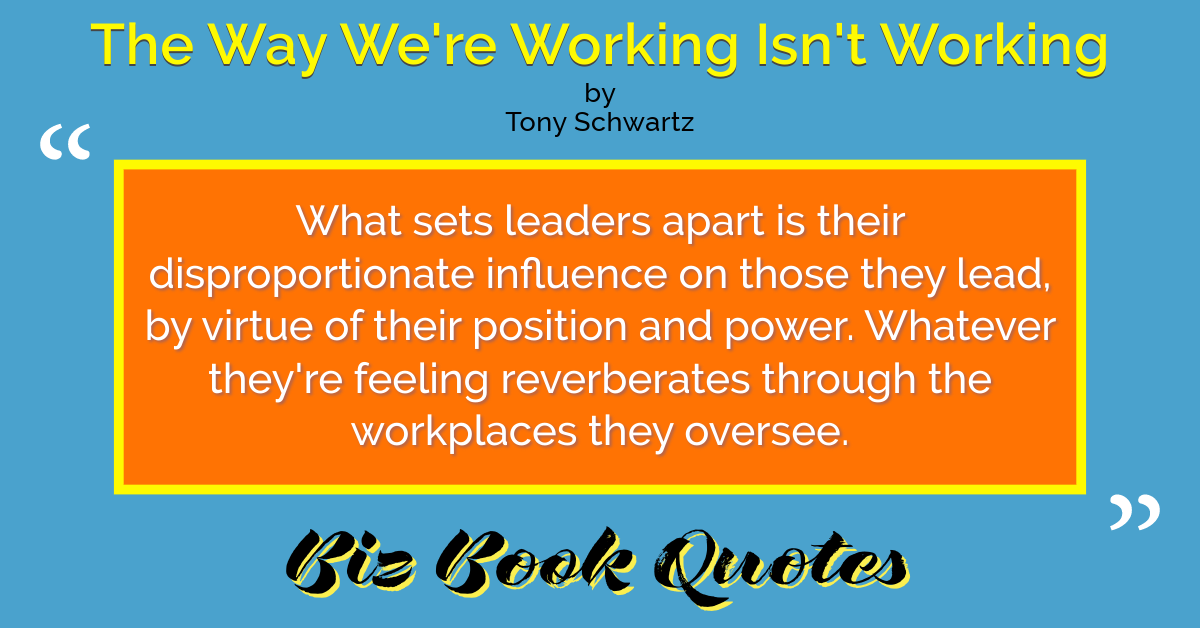 |
What sets leaders apart is their disproportionate influence on those they lead, by virtue of their position and power. Whatever they’re feeling reverberates through the workplaces they oversee.
|
129 |
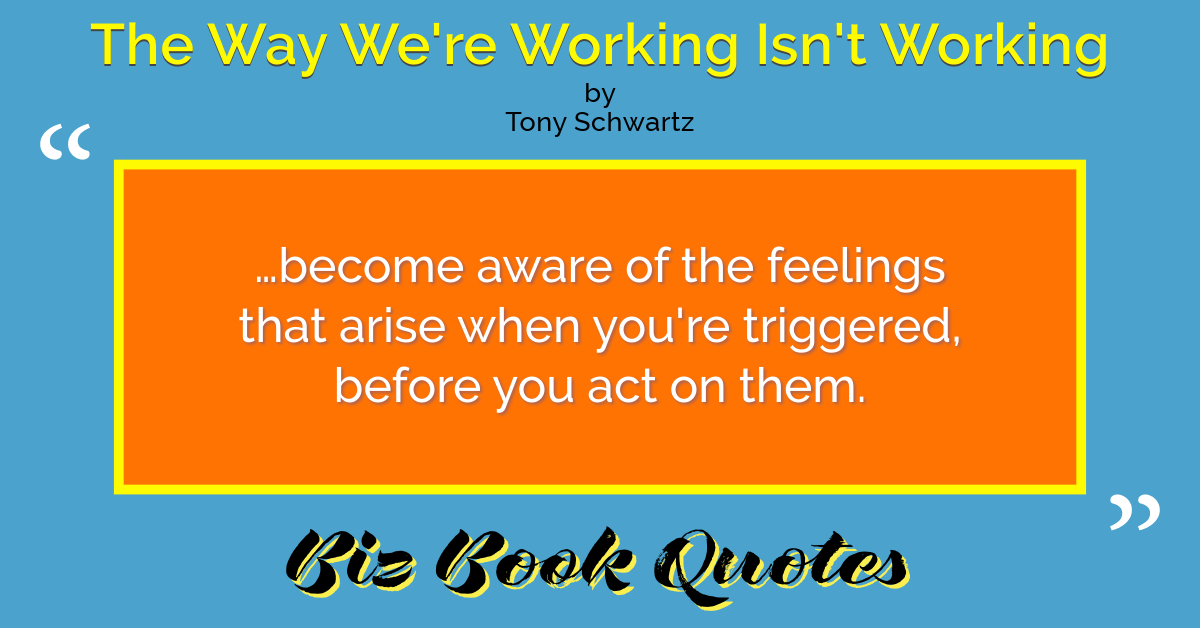 |
…become aware of the feelings that arise when you’re triggered, before you act on them.
|
135 |
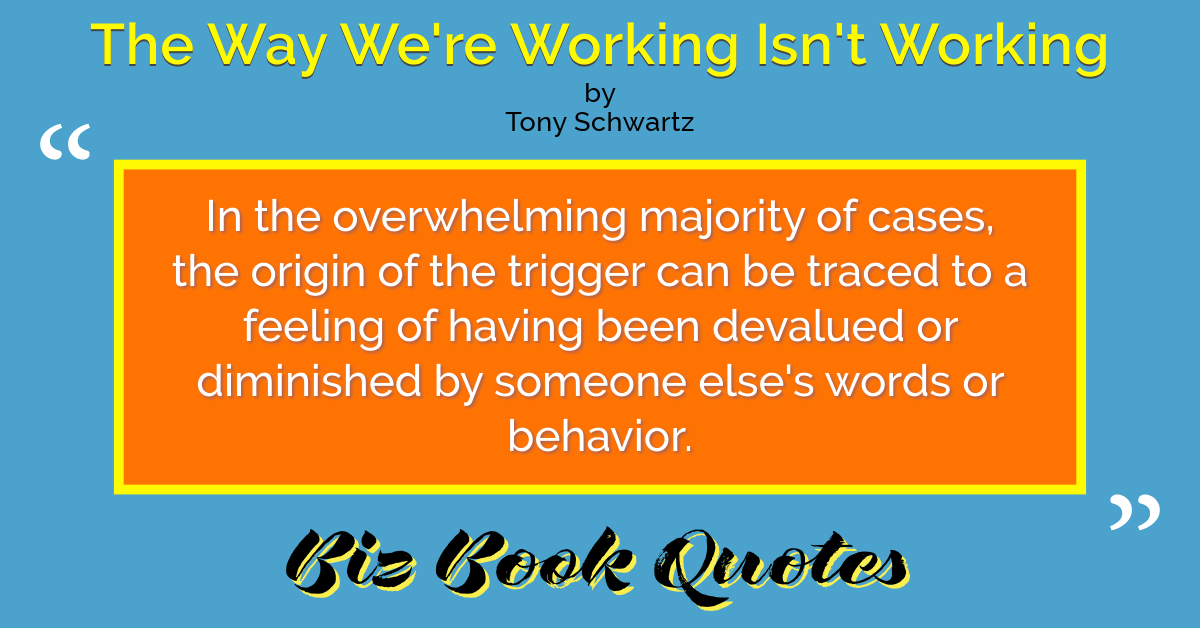 |
In the overwhelming majority of cases, the origin of the trigger can be traced to a feeling of having been devalued or diminished by someone else’s words or behavior.
|
137 |
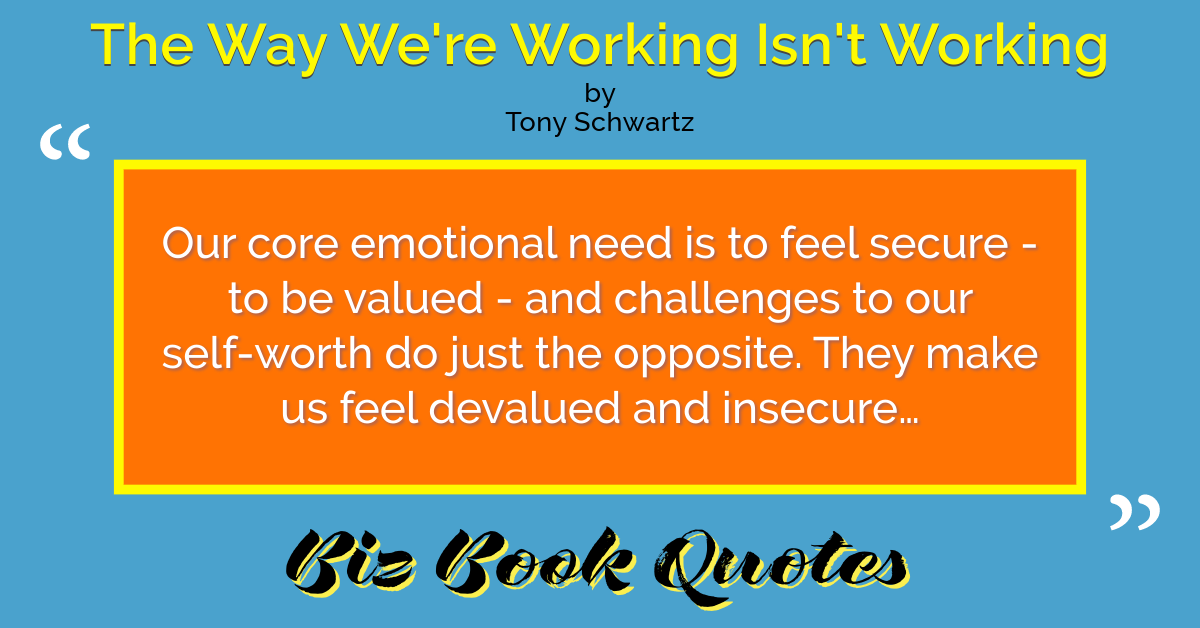 |
Our core emotional need is to feel secure – to be valued – and challenges to our self-worth do just the opposite. They make us feel devalued and insecure…
|
137 |
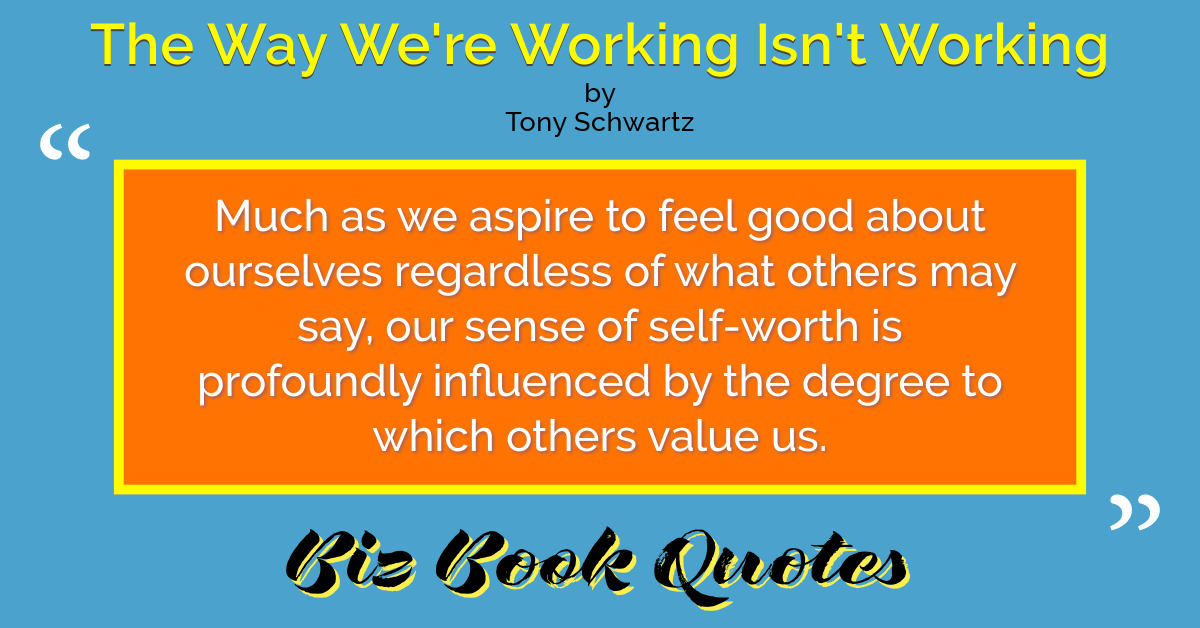 |
Much as we aspire to feel good about ourselves regardless of what others may say, our sense of self-worth is profoundly influenced by the degree to which others value us.
|
138 |
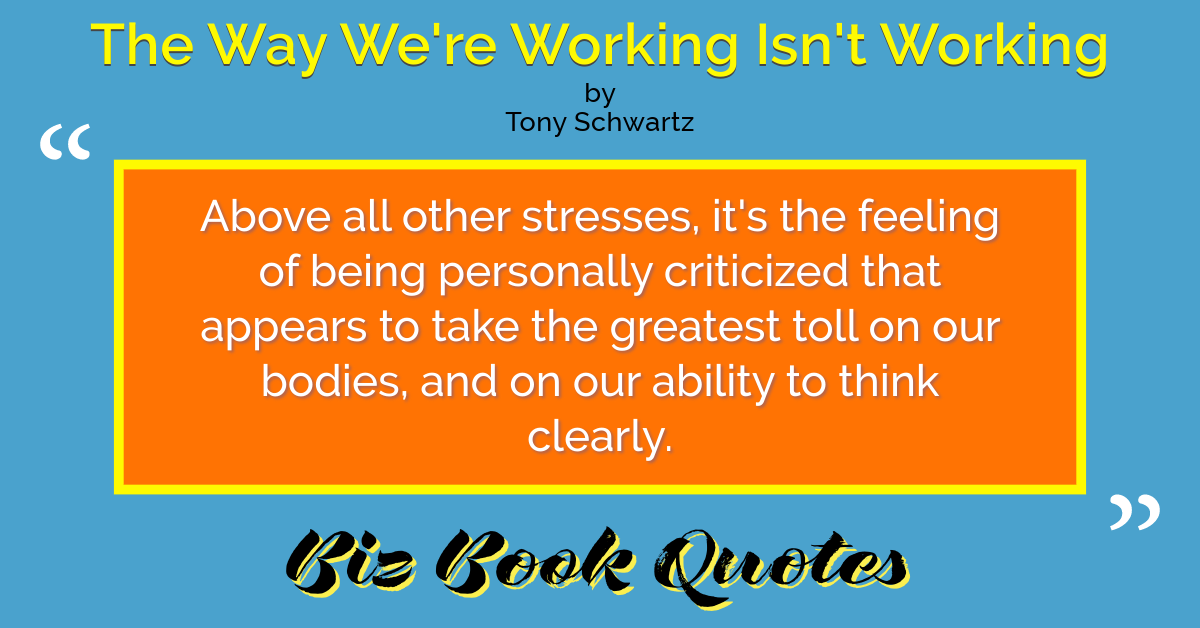 |
Above all other stresses, it’s the feeling of being personally criticized that appears to take the greatest toll on our bodies, and on our ability to think clearly.
|
138 |
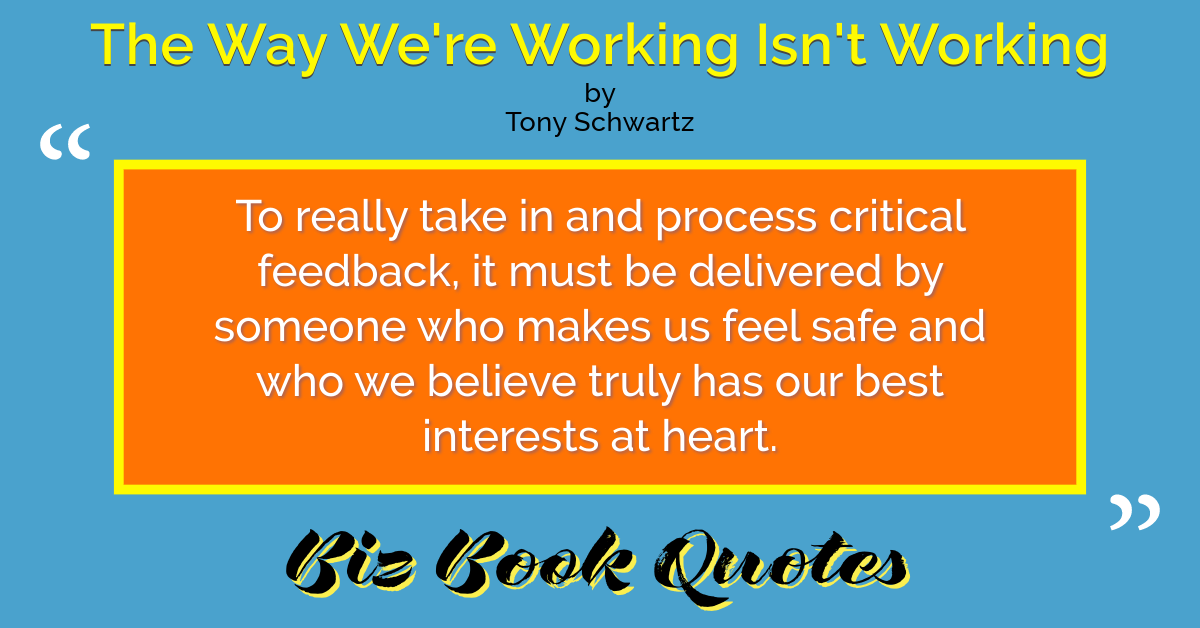 |
To really take in and process critical feedback, it must be delivered by someone who makes us feel safe and who we believe truly has our best interests at heart.
|
139 |
 |
The more we feel our value is at risk, the more energy we spend defending it and the less energy we have available to create value.
|
139 |